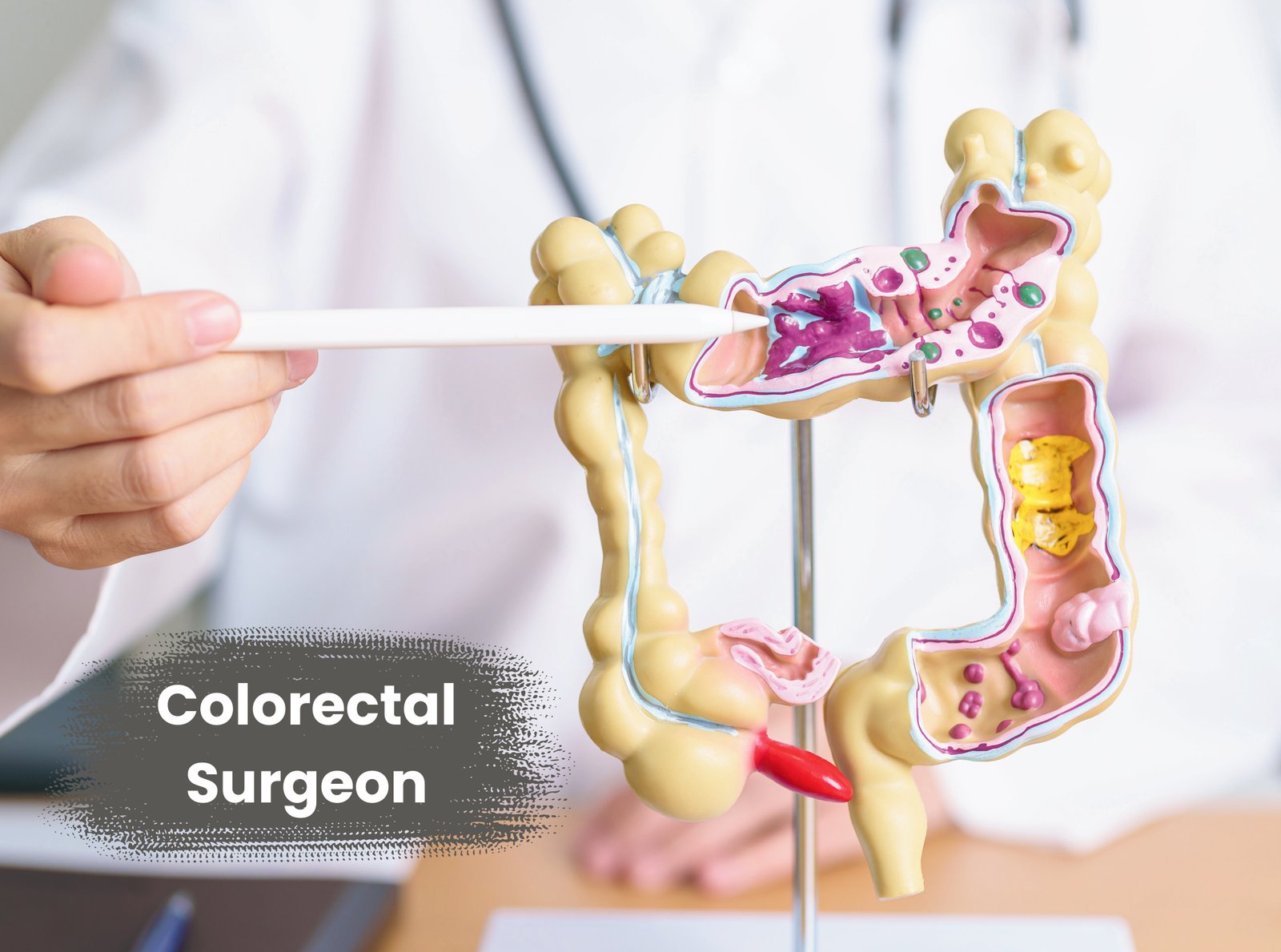Colorectal surgeons are specialized surgeons who focus on the treatment of disorders and conditions affecting the colon, rectum, and anus. Their expertise includes both surgical and non-surgical management of a wide range of colorectal conditions. Here are some aspects of colorectal surgeon treatment:
- Consultation and Diagnosis:
- Colorectal surgeons begin by conducting thorough consultations to understand the patient’s symptoms, medical history, and perform physical examinations.
- Diagnostic tests such as colonoscopy, sigmoidoscopy, imaging studies, and laboratory tests may be ordered to accurately diagnose colorectal conditions.
- Medical Management:
- Colorectal surgeons may initially recommend non-surgical treatments for certain conditions. This can include medications, lifestyle modifications, and dietary changes.
- Surgical Procedures:
- Colorectal surgeons are highly skilled in performing a variety of surgical procedures, including but not limited to:
- Colon and rectal cancer surgery
- Inflammatory bowel disease (IBD) surgeries (e.g., colectomy)
- Hemorrhoidectomy
- Fistula and abscess surgery
- Rectal prolapse surgery
- Diverticulitis surgery
- Minimally Invasive Techniques:
- Colorectal surgeons often utilize minimally invasive techniques such as laparoscopic or robotic surgery. These approaches can result in smaller incisions, reduced pain, and faster recovery for patients.
- Stoma Creation and Management:
- In cases where the removal of a portion of the colon or rectum is necessary, colorectal surgeons may create a stoma (an opening on the abdomen for waste elimination). Stomas may be temporary or permanent, and the surgeon will educate the patient on proper stoma care.
- Postoperative Care:
- Colorectal surgeons closely monitor patients after surgery, ensuring proper healing, managing pain, and addressing any complications.
- They provide guidance on postoperative care, including diet, physical activity, and follow-up appointments.
- Collaboration with Other Specialists:
- Colorectal surgeons often work in collaboration with oncologists, gastroenterologists, and other specialists to provide comprehensive care for conditions such as colorectal cancer or inflammatory bowel disease.
- Treatment of Benign Conditions:
- Colorectal surgeons also address benign conditions such as colorectal polyps, anal fissures, and other functional bowel disorders.
- Continued Education and Research:
- Colorectal surgeons stay informed about the latest advancements in colorectal surgery through continuous education and participation in research activities.
If you suspect or have been diagnosed with a colorectal condition, it is important to consult with a colorectal surgeon for a comprehensive evaluation and personalized treatment plan. The specific approach will depend on the nature and severity of the condition, and the surgeon will discuss the available options with the patient.


